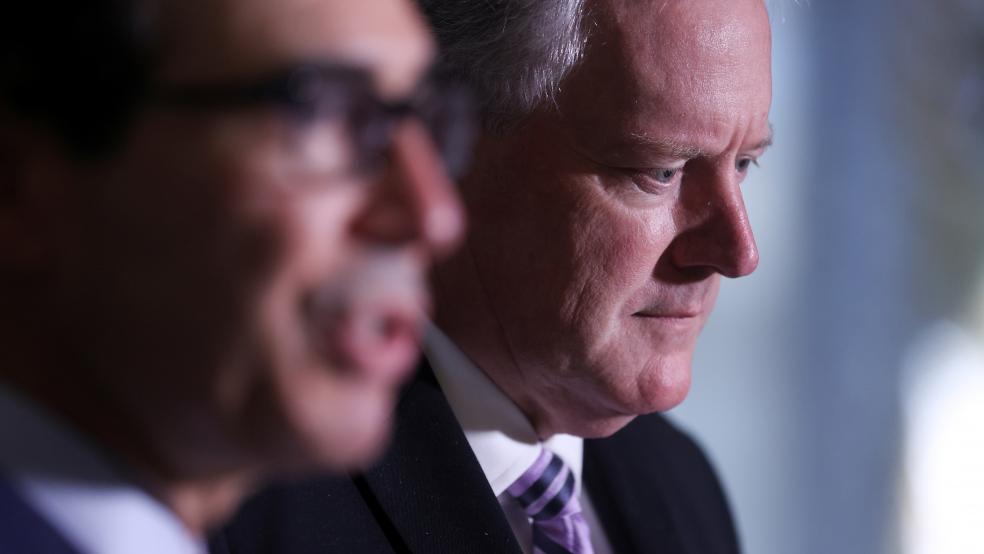White House Chief of Staff Mark Meadows said Wednesday that he’s “not optimistic” about reaching a coronavirus relief deal with congressional Democrats before the end of September and sought to cast blame for the ongoing impasse on House Speaker Nancy Pelosi.
Meadows said he has not had conversations with Democratic leaders since talks broke down nearly three weeks ago and that he had asked his staff to reach out to Pelosi on Tuesday but did not anticipate a response. He said that rank-and-file Democrats have been more open to a deal.
“If we got back in the room with some of their priorities, we could cut a deal — the president wants to do that. But I’m not optimistic,” Meadows said in a morning interview with Politico, adding, "It's really been Speaker Pelosi really driving this train as a conductor more so than anybody. And I think she talks privately that she wants a deal and maybe even publicly that she wants a deal, but when it comes to dealing with Republicans and the administration, we haven't seen a lot of action."
Pelosi spokesman Drew Hammill told Politico that a Meadows' staffer had texted to confirm that Pelosi’s office had the correct number for the chief of staff, but did not mention resuming talks. "Democrats have compromised in these negotiations," Hammill said in a statement to Politico. "We offered to come down $1 trillion if the White House would come up $1 trillion. We welcome the White House back to the negotiating table but they must meet us halfway."
Republicans have refused those demands and continue to work on their own, narrower package. "We're very close to having a bill that Republicans are prepared to move on, hopefully as early as next week," Republican Sen. Marco Rubio of Florida told “Fox & Friends” on Wednesday.
Government funding deadline looms: As if a pandemic, a recession, stalemated coronavirus relief talks, racial justice issues, an election, wildfires and hurricanes weren’t enough for the nation to deal with, Congress must also agree on government funding for the fiscal year that will start on October 1. Lawmakers are expected to have to pass a stopgap measure known as a continuing resolution, or CR, to extend funding and prevent a government shutdown just ahead of the elections.
In his interview with Politico, Meadows suggested that Pelosi may want to link coronavirus relief to such a funding bill as a way to gain more leverage. “I think the speaker is going to hold out until the end of September and try to get what she wants in the funding for the government during the CR or whatever funding mechanism happens to come up at the end of September,” he said.
Pelosi has rejected the idea of waiting until next month for a coronavirus deal, saying earlier this month that “people will die” if Congress didn’t act sooner.
Meadows backed the idea of coupling the bills and doing it quickly. “I think that if we do a COVID deal right now, we ought to just do a continuing resolution as part of that solution so that we take a shutdown off the table,” he said.
Bloomberg News reports that Senate Republicans are “actively preparing” for talks combining coronavirus stimulus and government funding and that Senate Majority Leader Mitch McConnell (R-KY) has circulated a draft of a slimmed-down stimulus bill that would provide $300 a week in unemployment benefits through December.
The bottom line: There’s still no movement toward a deal that can pass both chambers of Congress. “The stimulus delays come as economists are increasingly warning that the U.S. risks a prolonged recession if Congress doesn’t provide $1 trillion to $2 trillion in relief funds this fall,” Bloomberg’s Erik Wasson and Justin Sink write.





